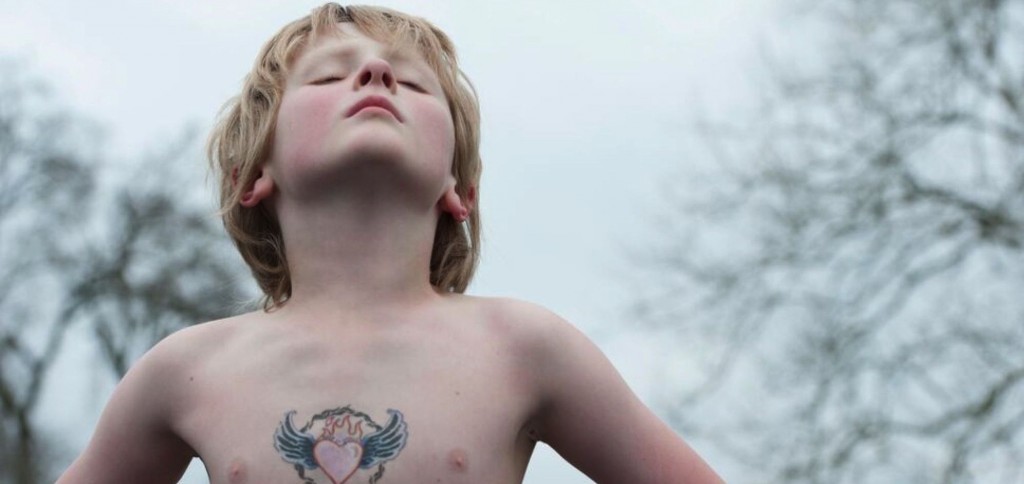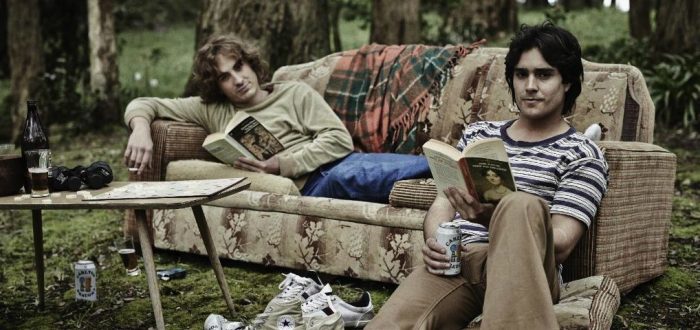Indie Gems is an annual film festival held at Riverside Theatres, Parramatta which presents a selection of independent films, filmmaker Q&As and special events over the weekend of 11-13 September. Information and tickets can be found here. Ahead of the Festival, we sit down with Festival Director, John L. Simpson.
So this year makes the sixth iteration of Indie Gems, and I notice looking through various press releases this idea comes up about bringing non-commercial cinema to areas of Sydney that otherwise might not see it a lot. Six years ago, was that the driving force behind making the Festival?
Yes, very much so. I come from a background being both a film producer and a distributor and one of the things that I really noticed six years ago was that independent films of quality – we’ve got different names for independent films, having evolved from what we used to call arthouse films, quality films outside the studio system – and I really noticed there was no home for independent cinema west of Sydney. So if you wanted to see a really interesting arthouse film or independent film, you had to go to the Chauvel in Paddington, or the Cremorne Orpheum, and I thought that was really disappointing, because I knew there was an audience in Sydney’s west – people in Blacktown and St Marys and Parramatta were interested in artistic films and weren’t being given the opportunity. So we have a plethora of popcorn houses, as I call them, and they’re terrific and they do a great job of bringing the studio films to audiences, but I was interested in independent films, particularly Australian films. When I found a likeminded person in Robert Love at the Riverside cinema, he was of the same opinion and we went from there.
In addition, how important is the big screen? It feels like opportunities for short films or student films to be seen in a cinema are becoming rarer and rarer.
Yes. Look, I’m certainly of the belief that the digital revolution has really created extraordinary opportunities for filmmakers to get their films out to people on devices, on tablets, on phones, on TV sets and laptops, which is fantastic, but sitting together in the dark with that sense of community is something still very important in the film-watching and filmmaking experience. That hasn’t changed – it has evolved – but it’s still a very important thing, and as a filmmaker myself it’s something I have seen many times with films I’ve made or distributed, and the feedback you get when people sit and watch your film, the good, the bad and the ugly. It’s all important to be confronted by your audience. Delivering it online, you do get feedback, sometimes horrible stuff from trolls, sometimes great from people posting, but it’s not the same as hearing people laugh or cry, and the opportunity to have a discussion – what that means, what’s the symbolism, to have the filmmaker there is a really unique thing.
At the Indie Gems Film Festival we know you have to do so much more than just show a film. Festivals have to be about really coming together, putting on a good show, as it were. There has to be parties! Good food, good drink, good discussion, the filmmakers have to be there, and that’s what we have to do. I have to be honest, I love a good party and have been to some of the best film festivals across the world. I’ve been to Cannes, Sundance, Rotterdam, Sydney and Melbourne and the one thing they all have in common is that all the good film festivals have fanstastic parties. Some of them go day and night – we don’t go all night, but we do have parties, and every screening is like that. Our biggest is opening night, free drink and food for everyone, and then closing night. I encourage everyone to come along, have a chat. Filmmakers can get great inspiration from watching movies, but there’s also opportunities for writers to meet filmmakers, actors to meet directors and so on, in a friendly atmosphere.
Just turning to this year’s program. I wondered about your thoughts on the controversy surrounding Gayby Baby over recent weeks, which coincides with its screening at Indie Gems – on the one hand it’s obviously generating publicity, but do you think the so-called controversy is distracting from the point of the film?
I’m in two minds – I was quite surprised by the controversy. At its heart, it is not a controversial film. It’s about a couple of families bringing up some wonderful kids in I guess a non-mainstream family configuration, if you will, but with all the same elements that all families need to have like love, support and the wisdom of two parents. I saw the film and was immediately very impressed with it, it does all the things a good documentary should do. It made me think, made me feel, challenged me. By the end of the film, I was really moved, the kids and the families are all pulling together the way all good families do. The filmmakers were very honest, and the families – to let a filmmaker into your lives is such a brave and honest thing to do and I’m glad they did it. I mean, it’s a PG-rated film, so the chief censor of Australia thinks it’s suitable for kids with some guidance. I think what the controversy has done is put a spotlight on the film, so I hope more people see it rather than less. I have a 10-year-old and a 14-year-old daughter and I’ll be bringing them to the screening and discussion. I’m married, to a lady, and am a heterosexual living in a traditional family structure, but want my children to know that the idea of normal – there is some latitude – and there’s another way to be normal. So I was disappointed and shocked that there was too much fuss about, but if there are people opposing this discussion, then it’s really good to bring it out publicly. I was greatly disappointed in the quality of commentators, to put themselves down as commentators for a film they haven’t even seen. I think that’s really poor form.

And of course the acclaimed Holding the Man is at the festival, which also explores same-sex relationships. How much of programming the Festival comes down to films that resonate with issues affecting Australians, or is it a matter of picking the best films available? Or both?
You’ve hit it on the head – I’m really interested in diversity, whatever that means. We’re a small festival, and I’m more interested in quality than anything else. So with my programmer’s hat on, I wanted the very best films that we had access to, and I was delighted when the filmmakers said yes to us. Sometimes we can’t get what we want, but this year we got all the films we wanted, and these represent the best, most unique films. It may look like I have a gay theme going, but it’s more about human interest, about love. I guess I see the gay thing within the context of the whole. What I was looking for is the very best. Gayby Baby and Holding the Man represent the very best, not just as described by me but also by the AACTA Awards, as some of the finest films made in Australia. I chose them because of the quality. All good art, I believe, usually tackles important core issues, and these are important issues for Australia to be debating and be challenged by.
With that in mind, how does the programming work? How far out from the Festival do you begin formulating ideas and reaching out to filmmakers, and vice versa?
Yeah, I can always have my fantasies about what films are available. I guess it’s a bit of a jigsaw puzzle, you don’t know how it will come together. It starts last November, getting an idea of which films were in post-production and then you never know when they’re going to be released. Theres a juggling act going on, then a rush to get them. You have to know what they’ll say yes to, they don’t say yes to everyone of course. As soon as we realise what the screening dates would be, it was a mad rush to try and secure them.
Now you’re obviously very experienced in distributing local, independent films through Titan View. What do you think the main challenges facing independent Australian films are? How important are film festivals in the production and distribution of these films?
I think the biggest thing is reaching your audience – that’s always the number one thing for filmmakers. Filmmaking itself is its own challenge, but what happens after you’ve made the film is just so crucial. Finding cinemas prepared to screen them theatrically. It’s possible to release them online for video on demand, whether anyone knows it’s there is another thing. But that gold standard is still cinema. Convincing cinema owners to take it, that’s still the biggest challenge. But when you make a really really good film, you win over hearts and minds. It sounds facetious, but without that good film to start with…
The good films find a way…
They do. It’s so important for filmmakers to understand that we live in an era where the quality of films and entertainment is so very high. There was a time where television was a poor cousin to cinema, and now it’s so sophisticated with dramas like Breaking Bad and House of Cards and Game of Thrones, each episode looks like a feature. The very best actors, cinematographers and writers are taking television very very seriously. The standard is high, so emerging filmmakers need to be aware, you’ve got to bring your a game to writing, directing, all aspects of it. It’s tougher than it’s ever been because the standard is so high. Good used to be the standard, now you have to be really great for anyone to notice.
So lastly, what’s your pick for the weekend – a feature or short film, or event that shouldn’t be missed?
Two things – the student films are delightful, 2pm on Saturday. Some of the kids come up with great stuff, the primary school kids are hilarious and the high school kids have been very thoughtful. We also have a filmmakers’ discussion that’s fascinating, the producer for the Bondi Hipsters, and she’ll talk in that session about how emerging filmmakers can be involved in a feature film they’re going to make. If filmmakers and actors and crew members are interested to know how to get involved, that’s a not-to-be-missed session. It’s not just watching films, but how to get involved in the process.
Thanks so much for your speaking with me! Best of luck with the Festival.
Thanks.
